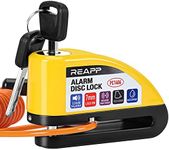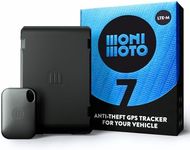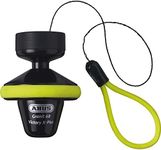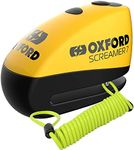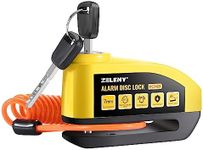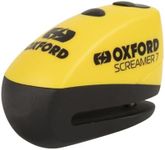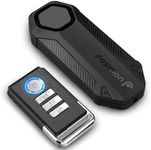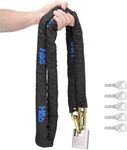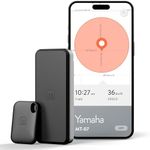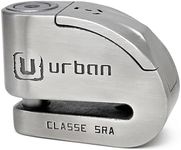Buying Guide for the Best Motorcycle Alarms
Choosing the right motorcycle alarm is crucial for ensuring the safety and security of your bike. With various options available, it's important to understand the key specifications and features that will best suit your needs. Here’s a guide to help you navigate through the essential specs and make an informed decision.Alarm TypeMotorcycle alarms come in different types, such as immobilizers, disc lock alarms, and GPS tracking alarms. The type of alarm is important because it determines the level of security and convenience. Immobilizers prevent the engine from starting, disc lock alarms secure the wheel and emit a loud noise if tampered with, and GPS tracking alarms allow you to track your bike's location. Choose an alarm type based on your security needs and how you use your motorcycle.
SensitivitySensitivity refers to how easily the alarm is triggered by movement or tampering. This is important because an overly sensitive alarm may go off frequently due to minor disturbances, while a less sensitive alarm might not detect actual theft attempts. Sensitivity levels can often be adjusted, so consider your parking environment and choose a sensitivity setting that balances security with practicality.
Sound LevelThe sound level of an alarm is measured in decibels (dB) and indicates how loud the alarm will be when activated. A higher dB level means a louder alarm, which can deter thieves and alert nearby people. Typically, alarms range from 100 dB to 130 dB. Choose a sound level that is loud enough to draw attention but not so loud that it becomes a nuisance in your area.
Battery LifeBattery life is the duration for which the alarm can operate before needing a recharge or battery replacement. This is important for ensuring continuous protection without frequent maintenance. Battery life can vary from a few months to over a year, depending on the alarm's power consumption and usage. Consider how often you ride and how convenient it is for you to recharge or replace batteries when choosing an alarm.
Water ResistanceWater resistance indicates how well the alarm can withstand exposure to water and moisture. This is crucial for outdoor use, especially if you ride in various weather conditions. Alarms with higher water resistance ratings are more durable and reliable in wet environments. Look for alarms with at least an IP65 rating if you frequently ride in the rain or park your motorcycle outdoors.
InstallationInstallation refers to how easy or complex it is to set up the alarm on your motorcycle. Some alarms require professional installation, while others can be easily installed by the user. This is important for convenience and ensuring the alarm is properly set up. If you prefer a hassle-free experience, look for alarms with straightforward installation processes or consider professional help if the alarm offers advanced features.
Additional FeaturesAdditional features can include remote control, smartphone connectivity, and tamper alerts. These features enhance the functionality and convenience of the alarm. Remote control allows you to arm and disarm the alarm from a distance, smartphone connectivity lets you monitor your bike through an app, and tamper alerts notify you of any suspicious activity. Consider which additional features are important to you based on your lifestyle and security needs.
